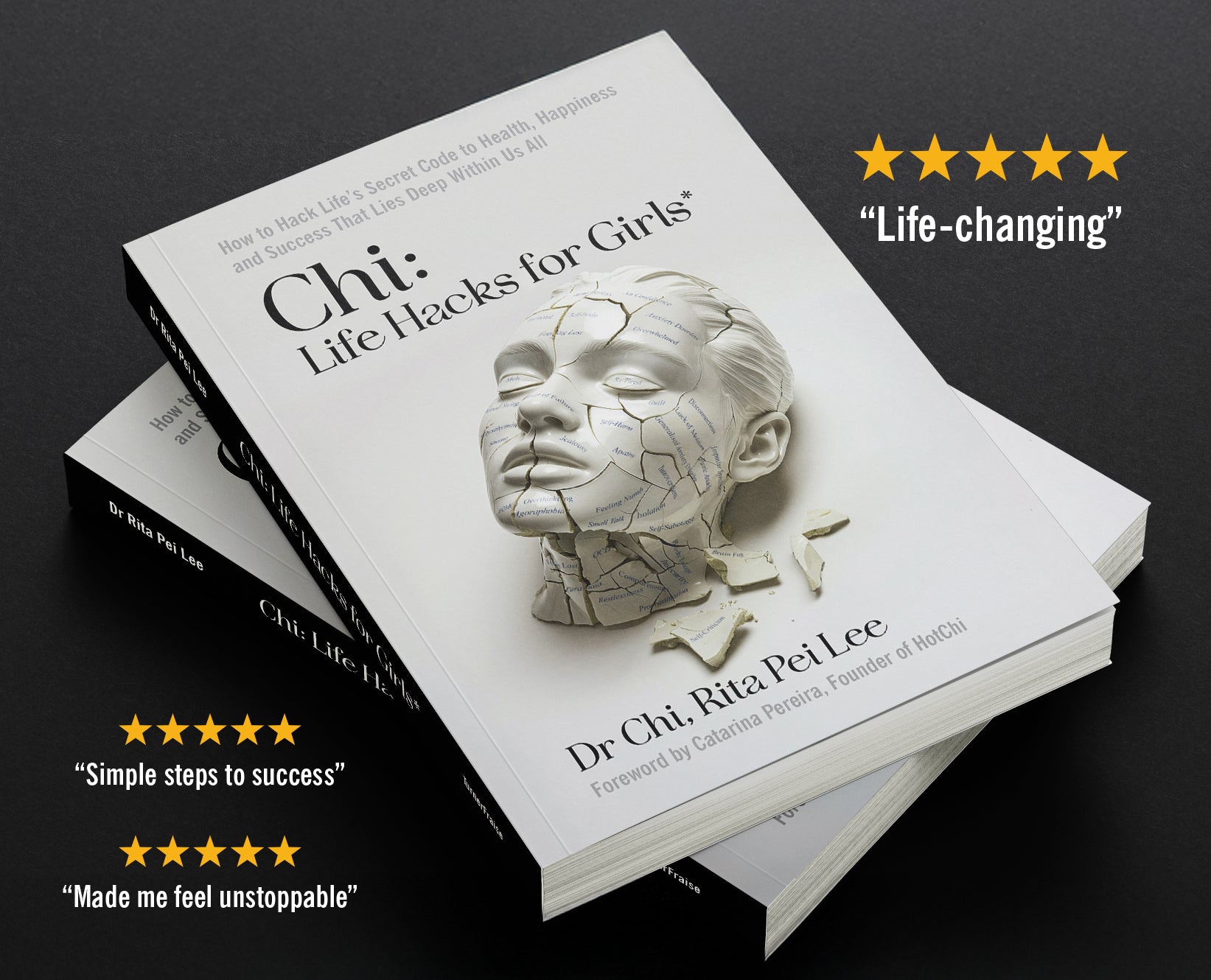Do you have trouble switching off, even at bedtime? Are you constantly battling weird, recurring thoughts?
Many young women find themselves struggling to control their thoughts, especially at night when the world quiets down. The relentless nature of intrusive thoughts can lead to sleepless nights, self-doubt, and devastating feelings of inadequacy. Understanding why these thoughts occur and how to manage them is crucial for mental wellbeing and personal growth.
What Are Intrusive Thoughts?
Intrusive thoughts are unwanted, involuntary thoughts, images, or impulses that can be distressing and hard to control. They often pop into your mind without warning and can be related to fears, doubts, or anxieties. For young women, these thoughts might revolve around academic performance, professional competence, social relationships, or personal appearance.
These thoughts are not just fleeting worries; they can be persistent and overwhelming, making it difficult to focus on daily tasks or enjoy life. Intrusive thoughts can range from mild concerns to intense fears, and they often create a vicious cycle of anxiety and stress.
The Science Behind Intrusive Thoughts
Intrusive thoughts are a common symptom of anxiety disorders, obsessive-compulsive disorder (OCD), and other mental health conditions. They are believed to originate from the brain's fight-or-flight response, a mechanism designed to protect us from danger. When the brain perceives a threat, it triggers a flood of anxious thoughts to prepare the body for action. However, in the case of intrusive thoughts, this mechanism becomes overactive, leading to persistent and distressing thoughts.
Research has shown that the prefrontal cortex, the part of the brain responsible for decision-making and self-control, plays a significant role in managing intrusive thoughts. When the prefrontal cortex is overwhelmed by stress or anxiety, its ability to regulate thoughts is impaired, leading to a constant stream of unwanted thoughts.
Why Young Women Struggle with Intrusive Thoughts
Young women are particularly susceptible to intrusive thoughts due to a combination of biological, psychological, and social factors. Hormonal changes, societal pressures, and the stress of balancing multiple roles can contribute to the prevalence of intrusive thoughts.
- Hormonal Changes: Hormonal fluctuations during puberty, menstruation, pregnancy, and menopause can affect neurotransmitter levels in the brain, leading to increased anxiety and intrusive thoughts.
- Societal Pressures: Social media and societal expectations place immense pressure on young women to achieve unrealistic standards of beauty, success, and perfection. The fear of not measuring up can fuel intrusive thoughts.
- Balancing Multiple Roles: Many young women juggle academic responsibilities, professional ambitions, social relationships, and family expectations. This constant balancing act can lead to chronic stress and anxiety, creating fertile ground for intrusive thoughts.
The Impact of Intrusive Thoughts
Intrusive thoughts can have a profound impact on various aspects of a young woman's life:
- Sleep Disruption: Intrusive thoughts often strike at night, making it difficult to fall asleep or stay asleep. This can lead to chronic sleep deprivation, which further exacerbates anxiety and stress.
- Self-Doubt and Imposter Syndrome: Persistent intrusive thoughts can erode self-confidence and lead to imposter syndrome, a condition where individuals feel like frauds despite evidence of their competence and achievements.
- Fear of Missing Out (FOMO): Social media amplifies the fear of missing out, as young women compare their lives to the curated, idealised images they see online. This can trigger intrusive thoughts about not being good enough or not living life to the fullest.
- Academic and Professional Challenges: Intrusive thoughts can impair concentration, decision-making, and performance, hindering academic and professional success.
- Social and Romantic Relationships: Anxiety and self-doubt stemming from intrusive thoughts can make it difficult to form and maintain healthy relationships, leading to feelings of isolation and loneliness.
Dealing with Intrusive Thoughts
While intrusive thoughts can be challenging, there are effective strategies to manage and reduce their impact:
-
Cognitive Behavioural Therapy (CBT): CBT is a well-established treatment for intrusive thoughts. It involves identifying and challenging negative thought patterns and replacing them with more positive and realistic ones. A study published in the Journal of Consulting and Clinical Psychology found that CBT significantly reduces the frequency and intensity of intrusive thoughts.
-
Mindfulness and Meditation: Mindfulness practices help individuals stay present and detach from their intrusive thoughts. A meta-analysis published in the Journal of Clinical Psychology showed that mindfulness-based interventions effectively reduce anxiety and improve mental health.
-
Stress Management: Reducing overall stress through regular exercise, a healthy diet, and adequate sleep can improve mental resilience and reduce intrusive thoughts. According to the American Psychological Association, physical activity increases the production of endorphins, which help to alleviate stress.
-
Limiting Social Media Use: Reducing time spent on social media can decrease exposure to unrealistic standards and lessen the impact of FOMO. A study in the Journal of Social and Clinical Psychology found that limiting social media use significantly reduces feelings of loneliness and depression.
-
Professional Help: Seeking support from a mental health professional can provide tailored strategies and support for managing intrusive thoughts. Therapy, medication, or a combination of both can be highly effective.
How HotChi Products and Rituals Can Help
HotChi’s Mood Boosting Skincare products can be an invaluable ally in managing intrusive thoughts and enhancing overall wellbeing. Our products combine the power of Botanical Actives, Essential Oils, and Chi to create a holistic approach to mental health.
-
Botanical Actives: Our products contain high-quality botanical extracts that soothe inflammation, nourish the skin, and promote relaxation. Ingredients like lavender and chamomile are known for their calming effects, helping to reduce anxiety and improve sleep quality.
-
Essential Oils: Aromatherapy has been shown to influence the brain’s scent-to-emotion pathways, promoting feelings of calm and happiness. Essential oils like bergamot and sandalwood can help balance neurotransmitters, reduce stress, and enhance mood.
-
The Power of Chi: Guided by ancient wisdom, our products harness the energy of Chi to restore balance and harmony. Incorporating HotChi’s Skincare products into a nightly ritual can help signal to your brain that it’s time to wind down, making it easier to manage intrusive thoughts and fall asleep.
HotChi Rituals for Managing Intrusive Thoughts
-
Evening Aromatherapy: Use your favourite HotChi products before bed to centre yourself. Apply a few drops to your temples and wrists, and inhale deeply to take control and calm your mind.
-
Self-Acupressure: Combine your favourite HotChi products with self-acupressure techniques. Focus on pressure points known to reduce anxiety, such as the Yintang point (between the eyebrows) and the Pericardium 6 point (inner forearm).
-
Meditation and Mindfulness: Incorporate your favourite HotChi products into your meditation practice. The soothing scents of bergamot and sandalwood can enhance your mindfulness sessions, helping you stay present and detached from intrusive thoughts.
-
Regular Skincare Routine: Establish a regular skincare routine with HotChi’s products to create a sense of structure and ritual. This not only benefits your skin but also provides a daily moment of self-care and reflection.
You Are Not Alone
Remember, you are not alone in experiencing intrusive thoughts. Many young women face these challenges, but with the right strategies and support, you can overcome them. Ignoring these issues can lead to more significant problems, but taking action now can set you on a path to better mental health and personal growth.
Final Thoughts
Intrusive thoughts are a common struggle for many young women, impacting sleep, self-esteem, and overall wellbeing. Understanding the science behind these thoughts and implementing effective strategies can help manage them. Combining scientific approaches with holistic practices, such as those offered by HotChi, can provide a comprehensive solution to managing intrusive thoughts.
HotChi’s Mood Boosting Mindcare Technology is infused into all our products and will transform simple self-care practices into powerful rituals that promote mental and physical health. Embrace these strategies and remember, you have the power to overcome intrusive thoughts and achieve a balanced, fulfilling life.











